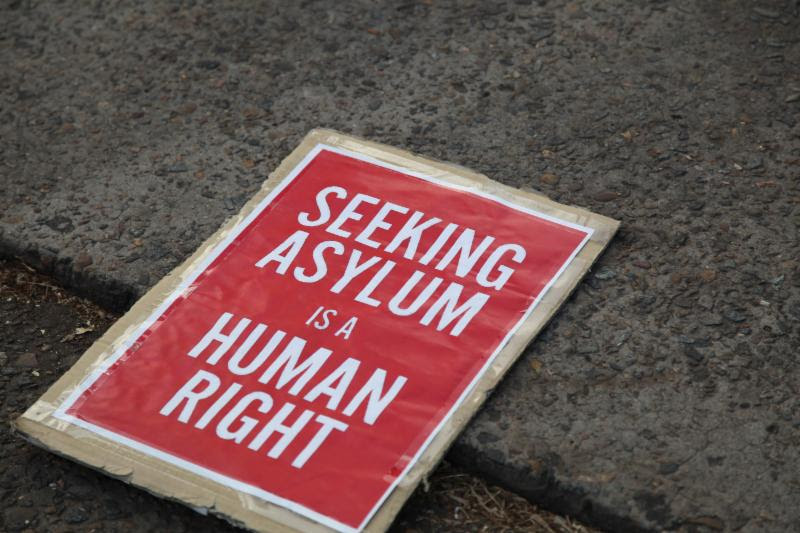Every day, we hear heartbreaking stories of unaccompanied children, young adults, and families fleeing escalating violence and economic turmoil in Central America. For decades, our nation has offered safe haven to those seeking refuge. It has aspired to build a fair and just asylum system based on law. In our small way, Refugee Transitions has been honored to assist the courageous individuals who’ve made the arduous journey to the U.S.
Sadly, the situation for asylum-seekers has dramatically deteriorated. In a radical departure from well-established processes and norms, the current administration is creating formidable new obstacles for those seeking asylum.
We are deeply disturbed by these changes. They don’t reflect long-standing American values of generosity, empathy, and compassion. They have an immediate effect on our local communities by sowing fear and keeping families apart. The asylum changes do, however, energize us more than ever to provide services that help asylum-seekers and others transition to their new home.
Central American families flee human rights abuses, exacerbated by economic duress.
Violence (especially gang and gender-based violence) continues to ravage Central America--for instance, homicide rates in El Salvador and Honduras remain among the highest in the world. In addition, communities across the region, especially indigenous communities, have lost livelihoods due to climate change, agribusiness, large-scale development, and extractive activity.
“Beyond poverty and violence, Central American immigrants are fleeing structural conditions that make their lives precarious and their ability to enjoy basic rights nearly unobtainable,” says Christopher Loperena, Professor of Anthropology at CUNY Graduate Center and RT’s former board member. The humanitarian crises in the region have been shaped by historical forces. U.S. involvement played a significant role, including through its support of undemocratic and destabilizing regimes.
Seeking asylum in the U.S. is legal.
According to U.S. law, individuals can seek asylum at the border or inside the country. They qualify for work permits 180 days after applying for asylum. Once granted asylum, they may seek permanent residency and ultimately citizenship.
Beyond our humanitarian and moral obligations, welcoming asylum-seekers from Central America is a positive for our communities. They contribute billions of dollars to the economy through taxes, consumer spending, and starting small businesses. They bring their rich cultures and add to the diversity of U.S. society, which is critical to our communities’ vitality and resilience.
While RT is currently a Bay Area-only organization, and does not provide services directly at the Southern Border, we work with hundreds of Central American asylum-seekers each year. We see first hand how our shared communities benefit from their resilience, bravery, and determination.
Newcomers from Guatemala, El Salvador, and Honduras are among RT’s fastest-growing student populations.
According to our partner, Oakland Unified School District, the number of newcomers in the school district grew more than 100% in the past five years. The largest group has been Guatemalans, including many monolingual speakers of indigenous languages such as Mam.
RT partners with Central American newcomers on their pathways to adjustment and success in the U.S.
Central American students participate in all of our education, family engagement, and community leadership programs. We support them as they embark on their pathways to education, employment, community engagement, and other goals in the U.S.
We know that to effectively serve participants, cultural humility and linguistic responsiveness are of paramount value. We have filled a gap in Oakland Unified School District by hiring a Mam Community Navigator. This staff member visits schools in Oakland and helps monolingual Mam-speaking students and their families navigate resources in their new community. Last year, our Mam Community Navigator served 192 of Oakland’s Mam-speaking youth with interpretation and navigation support. In addition, in San Francisco and Oakland we have bilingual and bicultural staff members who provide support in Spanish.
See our work in action: RT documentary, Languages of Hope
Support equitable access to U.S. opportunities for our Central American neighbors.
Image credits, top to bottom: (1) Kate Ausburn, Creative Commons license. No changes made to original image. (2) Laura Vaudreuil, Refugee Transitions.


